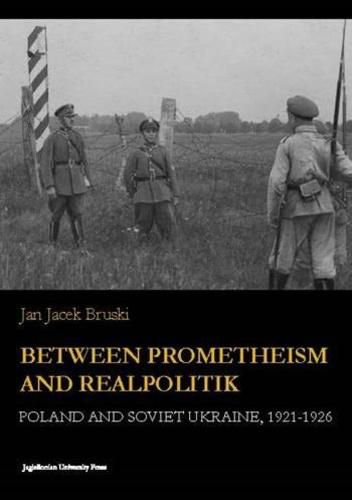Readings Newsletter
Become a Readings Member to make your shopping experience even easier.
Sign in or sign up for free!
You’re not far away from qualifying for FREE standard shipping within Australia
You’ve qualified for FREE standard shipping within Australia
The cart is loading…






The Treaty of Riga of March 1921 did not signify real peace. It was soon followed by the outbreak of a Polish-Soviet cold war, which in the early 1920s threatened to reach a boiling point. One of the salient fronts on which it was fought was Ukraine and the Ukrainian question. The means by which it was waged - first by Poland, and subsequently, more successfully, by the Soviets - was by attempts to stir up centrifugal tendencies on enemy territory, leading eventually to the splitting up of the neighboring state along its national seams. Polish-Soviet rivalry over Ukraine had flared up at the Riga peace conference. In the following years both antagonists struggled to win over the sympathies of Ukrainians living on either side of the frontier River Zbrucz (Zbruch) and dispersed in various emigre centers, and the weapons employed were propaganda, diplomacy, nationalities policy, economic projects, political subterfuge, and armed irredentism. Jan Jacek Bruski’s book addresses the first, very important phase of this Polish-Soviet tussle.
$9.00 standard shipping within Australia
FREE standard shipping within Australia for orders over $100.00
Express & International shipping calculated at checkout
The Treaty of Riga of March 1921 did not signify real peace. It was soon followed by the outbreak of a Polish-Soviet cold war, which in the early 1920s threatened to reach a boiling point. One of the salient fronts on which it was fought was Ukraine and the Ukrainian question. The means by which it was waged - first by Poland, and subsequently, more successfully, by the Soviets - was by attempts to stir up centrifugal tendencies on enemy territory, leading eventually to the splitting up of the neighboring state along its national seams. Polish-Soviet rivalry over Ukraine had flared up at the Riga peace conference. In the following years both antagonists struggled to win over the sympathies of Ukrainians living on either side of the frontier River Zbrucz (Zbruch) and dispersed in various emigre centers, and the weapons employed were propaganda, diplomacy, nationalities policy, economic projects, political subterfuge, and armed irredentism. Jan Jacek Bruski’s book addresses the first, very important phase of this Polish-Soviet tussle.